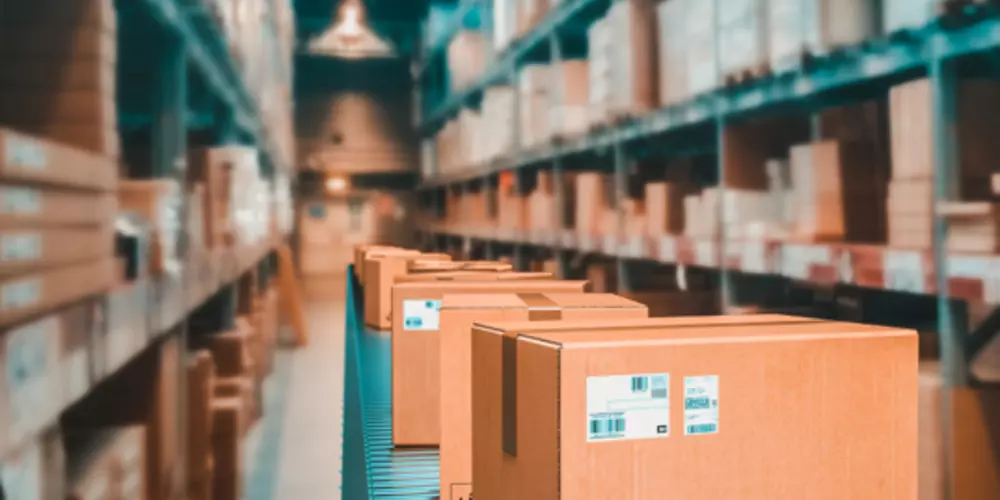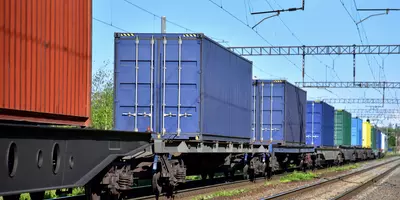
- Speed and availability are central to competitive e-Commerce
- The need for global small parcel deliveries is rapidly increasing
- Same-day and next-day delivery is a standard consumer requirement
- Cost and capacity matter in an industry with tight profit margins
- The right logistics provider gives you the power, flexibility, and control you need to compete
The e-Commerce industry is under increasing pressure, and online businesses are having to navigate increasingly complex challenges. On one hand you’re going up against giant first- and third-party marketplaces, and on the other, agile, disruptive e-Commerce startups are nipping at your heels.
Any successful e-Commerce strategy has to differentiate you from competitors of all sizes, domestic and international, across multiple marketplaces and channels. It’s the era of small parcel logistics.
When it comes to winning the competition, price remains a key factor in attracting consumers—but speed, choice, and service are also vitally important to making a sale. For the e-Commerce businesses trying to balance consumer behaviors, marketplace trends, and supply chain networks, it’s important to invest in the areas that will give you the biggest bang for your buck.
“Many players still struggle with omnichannel success given the requirements it places on their supply chains—especially in terms of speed, complexity, and efficiency. Customers expect to receive their products anytime and anywhere with a very short time between order and delivery, with excellent service and high convenience.”—McKinsey, Future of retail operations: Winning in a digital era
Speed and availability are central to competitive e-Commerce
Next to price, one of your key competitive factors is speed, and for e-Commerce businesses that means delivering small parcels, quickly. The bar has already been raised— Amazon Prime and next-day delivery have massively increased consumer expectations. Building out your own in-house, small parcel logistics network is far beyond the reach of most retailers—you need to turn to third-party logistics providers (3PL) to provide maximum speed, capacity, and cost optimization.
Here are the main areas for staying competitive in a more demanding marketplace.
The need for global small parcel deliveries is rapidly increasing
There’s an ever-increasing demand for small parcel deliveries, as retailers embrace omnichannel approaches and consumers increasingly move to buying online. This shift from traditional to e-Commerce is significant. In 2010, e-Commerce sales were responsible for just over six percent of all sales; by 2020, that had grown to 21 percent—more than one in every five transactions.
McKinsey explored the impact of this shift on the retail industry in their report “Retail speaks: Seven imperatives for the industry,” the findings tell us:
- Two-thirds of McKinsey’s survey respondents said that the growth of omnichannel and digital shopping is both the industry’s most significant trend and its greatest challenge.
- 65 percent of retailers are still basing store decisions largely on brick-and-mortar performance, with just 35 percent considering how such moves affect omnichannel.
- More than 90 percent of consumers see 2- to 3-day delivery as the baseline, and 30 percent expect same-day delivery.
- More than three-quarters of specialty retail supply chain leaders have prioritized 2-day delivery, and 42 percent are aiming for same-day delivery by 2022.
- That e-Commerce exceeds 20 percent of sales, but fulfillment networks are only built to handle half that volume.
If e-Commerce retailers want to thrive, then a deep understanding of small parcel delivery is critical.
“Skyrocketing e-Commerce volume means that your teams and systems need to be able to handle increased throughput, and not just on a temporary basis. The new volume you've been experiencing is likely here to stay. While this sounds like great news for upper management, it may cause more headaches and unforeseen costs within the logistics arena. Success in today’s environment relies on flexibility and resilience, and the key to both is having solid underlying technology. The right 3PL partner, combined with state-of-the-art parcel shipping software, can help.”—SupplyChain247, Why Third-Party Logistics Providers Are Gaining More Traction
Same-day and next-day delivery is a standard consumer requirement
The rise of Amazon Prime and next-day delivery has changed the table stakes for e-Commerce retailers. Whether you want a consumer to choose your products over the online behemoth, or if you’re selling through Amazon’s third-party marketplace and using your own fulfillment, every delivery needs to be fast. This doesn’t just apply to domestic deliveries either, cross-border small parcel shipping continues to grow in popularity.
A survey from Convey, “Shoppers Have a Need for Speed – Not Just Free Shipping” digs into this further:
- Delivery speed is vitally important to consumers. While cost remains the most important factor for 64 percent of respondents, 19 percent said speed was most important.
- Faster estimated delivery dates in the online shopping cart have a big impact on purchase decisions—29 percent of shoppers said they’d be more likely to buy if the order arrived within a week, compared with just 7.5 percent who say the shipping date doesn’t affect their likelihood to buy.
- Almost 80 percent said that free, fast shipping was important, compared to 31 percent who said in-store pickup was important.
- McKinsey reported that 46 percent of consumers have abandoned a shopping cart based on slow delivery times, and 35 percent didn’t even put items in a cart if they couldn’t get them quickly.
e-Commerce retailers that focus on speedy delivery can expect to see increased revenue and lower purchase abandonment.
“A ‘new normal’ has emerged when it comes to the delivery speed that customers expect in ordering online. The standards have been re-set by the likes of Amazon and several other market leaders, placing increasingly more pressure on incumbent players to respond accordingly… But to fully benefit from their network, omnichannel retailers will need to consider changing gears in four areas: the local fulfillment network, quick and integrated IT systems, new store layouts and processes, and a rethink of business economics.”—McKinsey, Future of retail operations: Winning in a digital era
Cost and capacity matter in an industry with tight profit margins
Availability and logistics costs are central to successful e-Commerce. Keeping products available and close to consumers means they have plenty of choice, while carefully managing inventory levels results in less capital tied up in stock. Tight profit margins and the competitive squeeze means retailers need to keep their fixed logistics costs as low as possible, while ensuring their providers have the capacity to flex according to supply and demand.
This means taking advantage of a diverse network of freight forwarding, fulfillment, and transportation options to reduce costs and increase consumer choices. Centralization is key to success here—retailers need a seamless and transparent way to manage products across the supply chain, rather than the overhead of managing and maintaining many disparate contracts.
The right logistics provider gives you the power, flexibility, and control you need to compete
e-Commerce retailers must partner with a 3PL that is investing in the technology, capacity, and networks to meet these needs. Key factors for choosing a logistics provider that can handle the demands of e-Commerce small parcel delivery include:
- Centralizing all of your small parcel distribution needs through one provider that can handle the entire end-to-end process, from goods receipt, through deconsolidation and storage, to transportation and last-mile distribution.
- Seeking out providers that have deep experience with cross-border parcel deliveries, including all of the regulations, compliance, and paperwork needed for customs and other legal processes.
- Providing total, landed costs to customers so they don’t have to deal with hidden fees and other charges.
- Optimizing existing logistics networks to allow for economies of scale and cost savings while maximizing service and supporting e-Commerce vendors of any size in any niche.
- Getting visibility and control of all your shipments and distribution through an integrated technology platform that allows you to quickly make tactical and operational decisions and understand the status of your supply chain.
- Balancing supply and demand management with a provider that has the capacity to manage all of your inventory and delivery needs and can adapt quickly to changes.
- Reducing costs through working with providers that prioritize investments into supply chain infrastructure, transportation, technology, and management.
“One of the first questions e-Commerce business owners should consider is whether or not to outsource their e-Commerce logistics to a third-party logistics provider... There are enormous advantages to outsourcing. Outsourcers have an abundance of capabilities that individual sellers do not, such as technology, manpower, geographic spread, and expertise. In addition, they have economies of scale that often allow them to give a better price per unit than insourcing options. Even more importantly, they allow retailers and sellers to focus on their core competencies — making and selling their products — and offer scalability as a business grows.” — AdRoll, In-House Or Third-Party Logistics Providers?
GEODIS MyParcel Can Help
GEODIS MyParcel makes it easy for U.S. domestic e-Commerce brands to go global. Our small parcel shipping service currently ships to 27 European countries, Great Britain, and Canada with guaranteed delivery in 4-6 days. How do we do this? By leveraging our parcel expertise, e-Commerce experience, deep understanding of global customs clearance processes, and integrated technology.
We can help you strike the balance between speed of delivery and total landed cost. We offer an end-to-end global transportation network and a fully integrated digital platform to make DDP a breeze for you and your customers. You can rely on our many years of e-Commerce experience to implement. Learn more about what GEODIS MyParcel can bring to your e-Commerce business today by contacting us today.
Stay on top of key trends. Subscribe to our insights today.




















































 by
by 
 by
by 